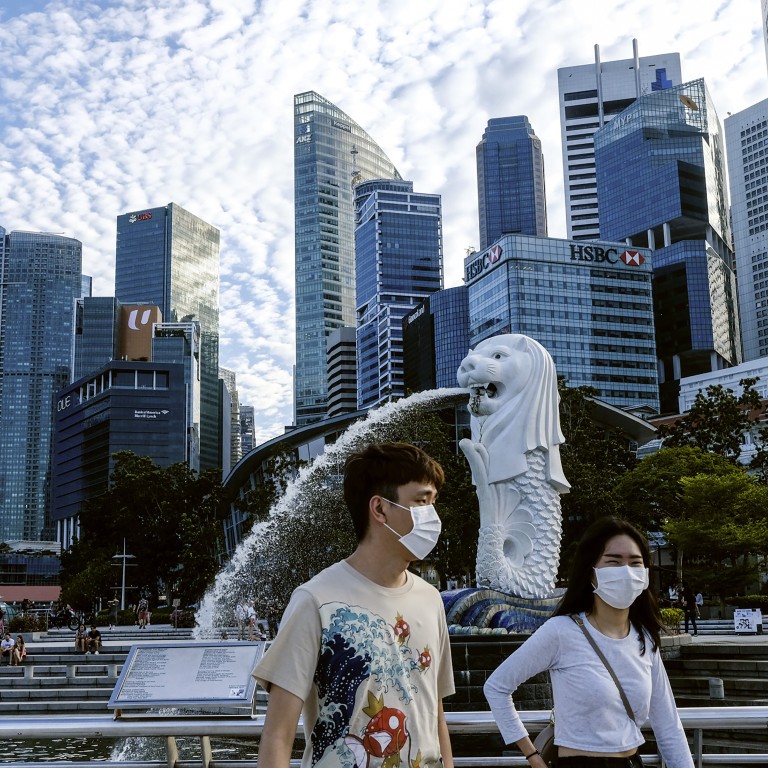
Coronavirus and Singapore elections: the best of times, or the worst of times?
- The crisis has given the People’s Action Party a platform to showcase its mettle ahead of a general election, with social-distancing measures expected to hurt the opposition’s campaign
- But should it reap a windfall from this unexpected crisis, the PAP faces the challenge of persuading people that any victory came on its own merit
What is worrying for the opposition is the possibility the health crisis could send anxious voters into the arms of the ruling People’s Action Party (PAP), while the restrictions on large gatherings during the outbreak could severely hamper opposition parties’ ability to campaign.
Singapore, Hong Kong, Taiwan: the real coronavirus world leaders
Even before tackling electoral logistics, the opposition is finding itself having to walk a fine line between appearing united with the rest of the country in the fight against Covid-19 and being able to criticise deficiencies in the government’s response.
The latter has been difficult to execute because the battleground plays to the ruling party’s well-honed skills: its forward planning in husbanding resources, efficiency at organising and distributing those resources, and a well-oiled communications strategy girded by a single-minded determination to keep the city state running efficiently.
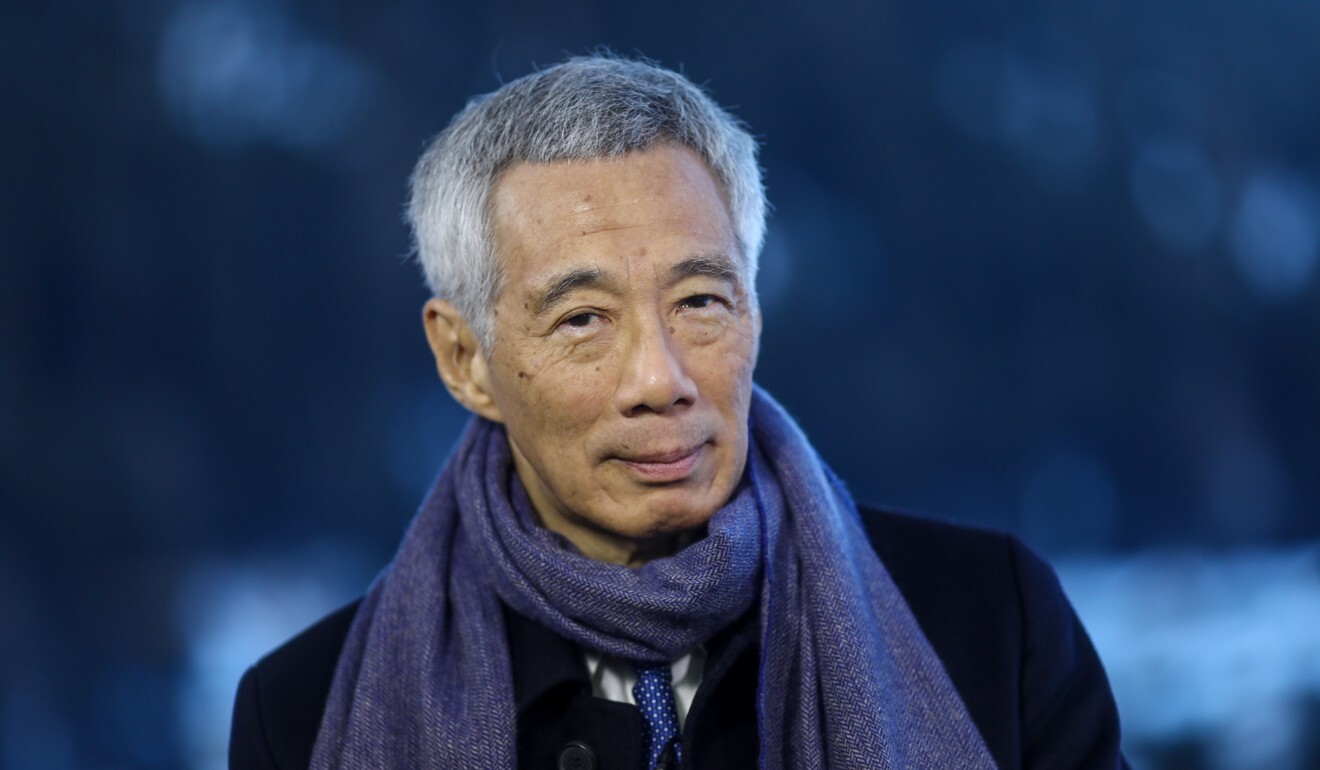
CRISIS + POLLS = PAP WIN?
Singapore has earned plaudits for being decisive and coming up with a new response each time a different problem in the pandemic appears. In a recent commentary, US-based columnist Edward Luce from the Financial Times suggested President Donald Trump’s beleaguered administration needed to urgently “Singaporise” to deal with its surge of infections.
Against that backdrop, Lee, 68, last weekend suggested the country had two choices on when to hold its upcoming general election.
In a Facebook post, he said one option was to “hope and pray” that Covid-19 would somehow ebb away before calling for polls. “But we have no certainty of that,” Lee wrote.
The second option was calling the polls early, “knowing that we are going into a hurricane, to elect a new government with a fresh mandate”.
That way, the leader said his long-ruling PAP would have a “full term ahead of it” and would be able to “work with Singaporeans on the critical tasks at hand”.
“Which way to go, and the election date, will depend on what will best see Singapore through this major crisis,” Lee wrote.
By Wednesday, signs Singapore would go to the polls sooner rather than later became clearer when national development minister Lawrence Wong – one of Lee’s lieutenants fronting communications over the crisis – said in a CNBC interview: “So, whatever the timing of the election, because it has to be held by April 2021, it is very likely that it will have to be held when Covid-19 is still circulating in our midst – that’s the reality.”
With updates to electoral boundaries released and the voter roll now open for public inspection, the earliest Lee can advise President Halimah Yacob to dissolve parliament is after the inspection process ends in early April.
If that timeline is adopted, the election could be held before April 23, the start of the Islamic holy month of Ramadan. Lee is unlikely to depart from the PAP’s practice of keeping the official campaigning period to the minimum of nine days.
“The election is likely to be in April,” said Eugene Tan, a law professor at the Singapore Management University who closely monitors local politics.
Coronavirus: Hong Kong and Singapore seen as safe harbours by US, Southeast Asian travellers
But Terence Lee, a Singaporean politics professor at Murdoch University in Perth, believes a May or June vote is more likely as elections have tended to be held about three months after the release of the redrawn electoral map.
The PAP also seems to have parlayed the curveball thrown by neighbouring Malaysia’s partial lockdown into an affirmation of the city state’s ability to be in control of the pandemic.
Putrajaya on March 16 announced it was closing its borders from March 18-31 as the number of confirmed cases in Malaysia rose to 900, with two deaths. But Singapore depends on some 300,000 Malaysian workers who cross the two land border checkpoints daily to ferry food supplies and perform a range of jobs many Singaporeans shun, from street cleaning to security services and building maintenance.
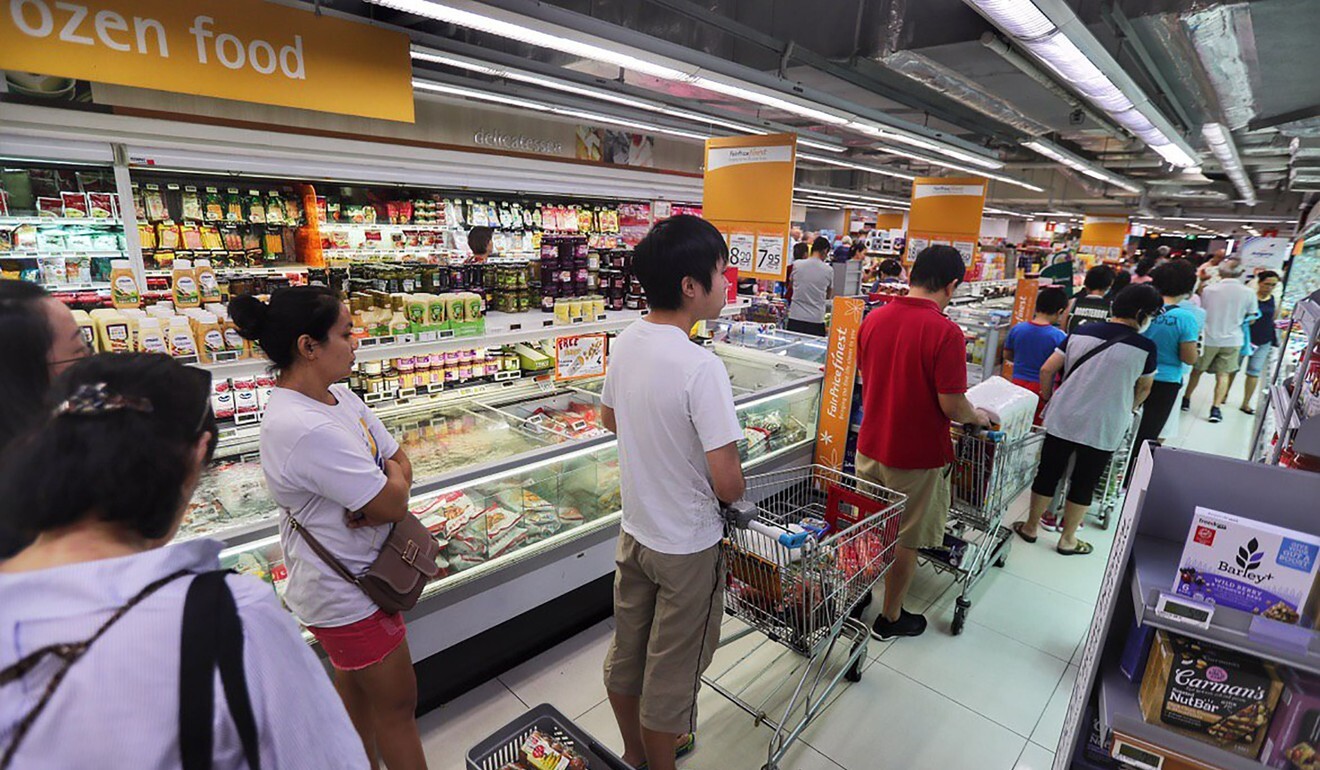
Singapore’s manpower ministry responded by working with local employers to offer Malaysian workers temporary housing options in the city state, and pledged to give these businesses S$50 a night per worker to go towards lodging fees.
A sports hall was turned into temporary accommodation for stranded workers – each given a kit of necessities, including a roll of toilet paper – some of whom had spent a night camping out at an MRT station.
While there were long queues and panic buying at supermarkets amid fears food supplies would be disrupted, government ministers assured the 5.7 million Singapore residents that there were months of stockpiled fresh and packaged food.
With talk that a recession in 2020 appears inevitable, the government is already exploring a second aid package on top of the S$4 billion (US$2.8 billion) in relief measures announced when the budget was unveiled last month.
Coronavirus: Malaysia brings in army to enforce partial lockdown amid outbreak
DBS Bank senior economist Irvin Seah predicts a package of between S$14 billion and S$16 billion, to be funded by the current government’s remaining surplus of around S$7.7 billion and an additional S$6 billion to S$8 billion from the reserves.
There are expectations the package could be announced as early as the next parliamentary sitting on March 25, which is already an unusual event in the calendar as the legislature typically does not sit again for the month after the budget debate.
The PAP’s best showing in the past three decades came amid a global crisis. In 2001, after the September 11 terrorist attacks dealt a serious blow to the world’s economies, Lee’s predecessor Goh Chok Tong called for a vote, knowing full well Singaporeans would see the PAP as their safest option.
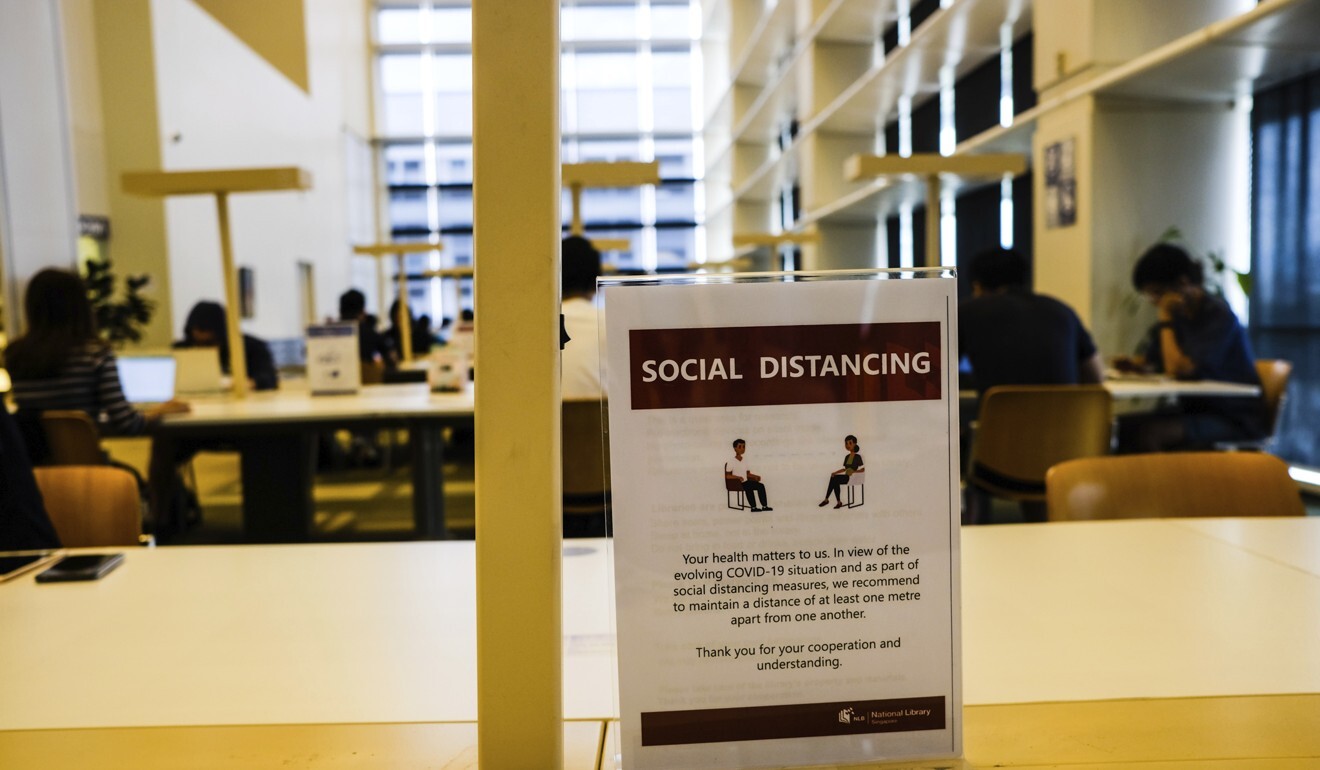
Just as Singaporean investors have been flocking to low-risk United States Treasury bills in recent days, they delivered victory to the PAP by giving it 75.3 per cent of votes – a dramatic margin even for a party that has held uninterrupted power since 1959.
Singapore’s fight against Covid-19 has been stewarded by the likes of national development minister Wong, a key member of the PAP’s “fourth generation”, or 4G, team led by prime minister-designate Heng Swee Keat. Heng is expected to succeed Lee soon after the election, and the polls are viewed by observers as a referendum of sorts on the younger ministers’ leadership mettle.
Lee of Murdoch University said all signs pointed to an “incumbency advantage par excellence for the PAP” this time around.
Coronavirus: nursing homes emerge as South Korea’s new battleground for infections
OPPOSITION DECIMATION?
That means a tougher-than-usual road lies ahead for an opposition already encumbered by poor funding, disunity and what analysts say are barriers to a fair contest. The electoral boundaries review committee, for instance, is not required to publicise a detailed account of why it was reshaping the boundaries. The Workers’ Party (WP) – the only party with elected MPs – has raised questions about the erasure of single-seat wards in which it had been active.
In a statement last Sunday, the WP also addressed the mounting speculation of polls sparked by Lee’s Facebook post. The party said while it would refrain from speculation, it hoped the government would “take caution and exercise judiciousness in calling for a general election”.
“Whatever decision that is made must be one that is in the best interests of Singapore, our democracy and the public health of Singaporeans,” it said.
The commentators said they foresaw the WP and other opposition parties – some 10 of which are expected to face off with the PAP – facing major hurdles in public outreach if social distancing measures remain in force.
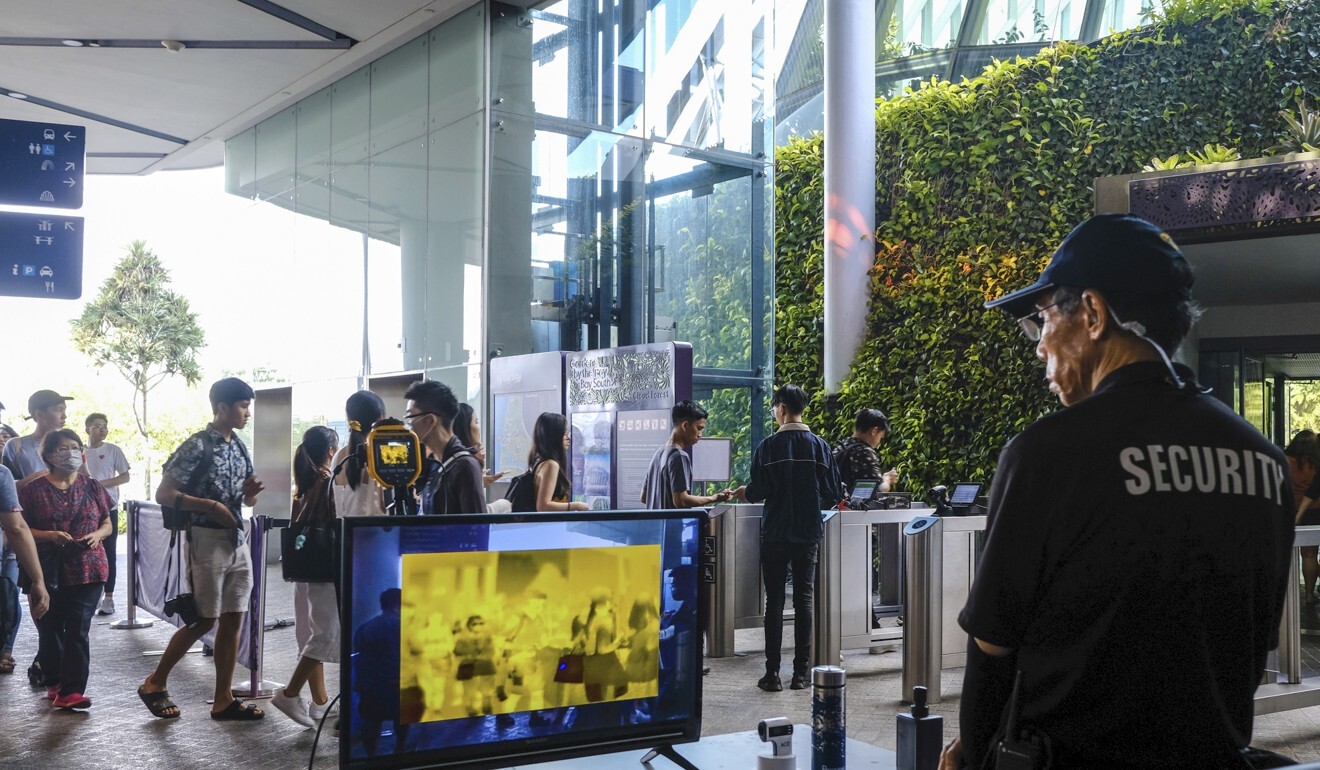
The incumbent PAP, the analysts say, is likely to tap on its immense social media presence and the help of mainstream media that tends to be pro-government. The likes of the WP have long relied on their electric election rallies – which draw tens of thousands of people – to get their message out, while PAP rallies attract far smaller crowds.
While attendance at such rallies is never a barometer of support at the ballot box, they are vital for the opposition to hammer home their pledge to be a check on the ruling party once they make it to parliament.
Coronavirus: South Korea fears worst is not over as new clusters emerge
Opposition parties like the WP have also traditionally relied on door-to-door visits to connect with voters. In the 2011 election, in which they won for the first time the previously elusive prize of a group representation constituency of five seats, party leaders said home visits had made all the difference. Even so, one of the party’s members last week said their twice-weekly home visits would be ramped up in coming weeks.
Felix Tan, an associate lecturer at SIM Global Education, said all parties would have to think of new ways to engage the public.
Loke Hoe Yeong, a London-based political analyst and former Singaporean-opposition insider, said chatter within the opposition camp was that the coronavirus situation could lead to a “possibly worse” election for them than in 2001.
VIRUS CONCERNS
Loke said “fringe opposition parties” could fall into the temptation of taking cheap shots at the PAP for holding the election during the pandemic, which in turn might “backfire dramatically”.
That line of attack appears to be gathering steam.
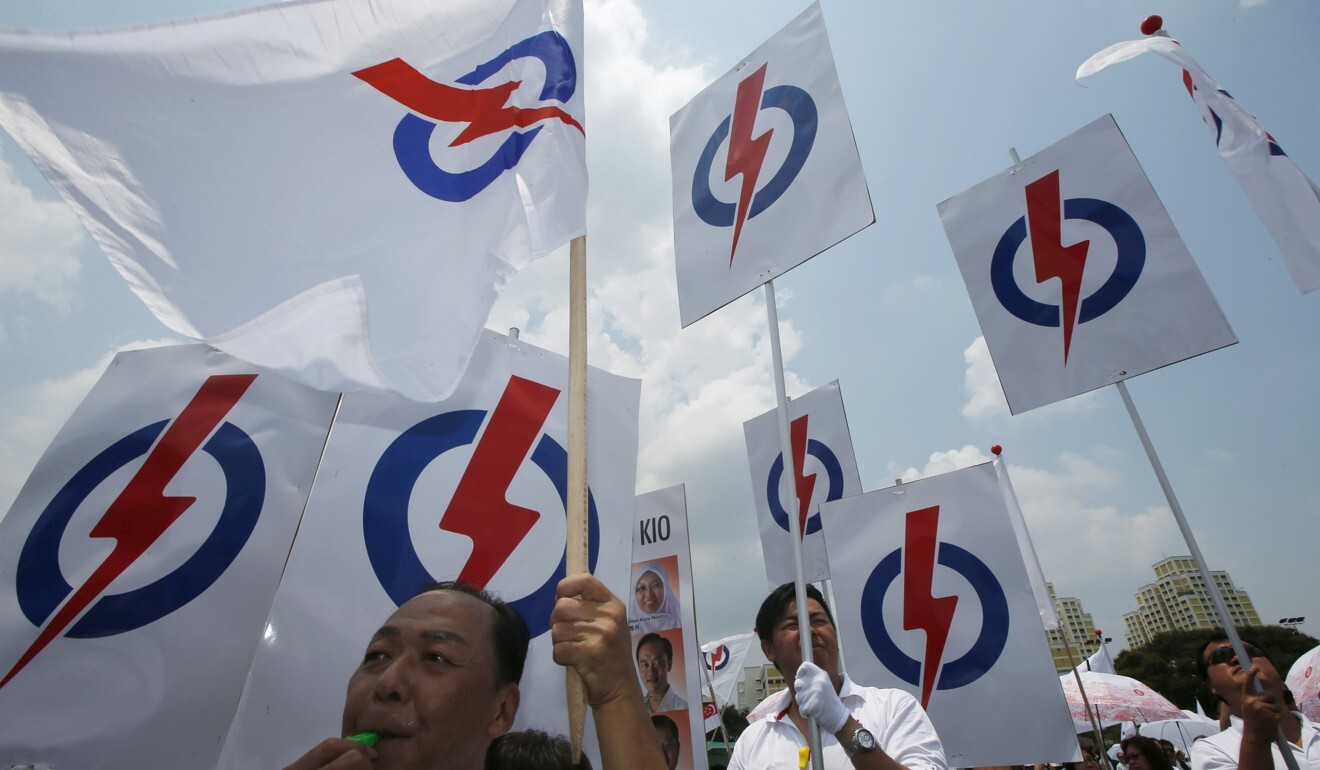
Tan Cheng Bock, a former PAP stalwart who is now at the helm of the newly formed Progress Singapore Party, warned that holding elections during the crisis would expose “more than 2.6 million voters to the virus on polling day”.
Chee Soon Juan of the Singapore Democratic Party – a long-time adversary of the PAP’s top leaders – said “it would be the height of irresponsibility if it goes ahead with the general election at a time when public safety is at its most vulnerable”.
“The PAP cannot place its own political interest over the health and safety of the Singaporean people,” he said.
Elvin Ong, a postdoctoral fellow at the University of British Columbia’s Institute of Asian Research, said the authorities would have to offer clear details on how the spread of the virus would be minimised.
“For instance, how are Singaporeans who are served stay-home notices or under home quarantine supposed to vote?” he asked. “How should politicians and political parties campaign when social distancing of at least 1m is [to] be observed at all times?”
Coronavirus: former Malaysian PM Mahathir Mohamad in self-quarantine
It is also unclear how the election department plans to conduct roadshows to bring voters up to speed with newly introduced aspects of the voting process, including an e-registration mechanism and the use of a self-inking pen.
Ong said civil service and frontline health workers might also be overstretched if polls were held soon.
A few non-partisan voices have emerged to say the government should ride out the worst of the crisis before holding an election. One of them, former Nominated MP Viswa Sadasivan, wrote a public letter saying elections in the next two months at a time of “peaked anxieties” would not be wise.
“Even if giving the new government a ‘fresh mandate’ is the aim, isn’t how this is achieved important?” he wrote.
Thus, even if the PAP reaps a windfall from this unexpected crisis, its challenge will be to persuade Singaporeans that its victory required no such favours. ■
Purchase the China AI Report 2020 brought to you by SCMP Research and enjoy a 20% discount (original price US$400). This 60-page all new intelligence report gives you first-hand insights and analysis into the latest industry developments and intelligence about China AI. Get exclusive access to our webinars for continuous learning, and interact with China AI executives in live Q&A. Offer valid until 31 March 2020.


